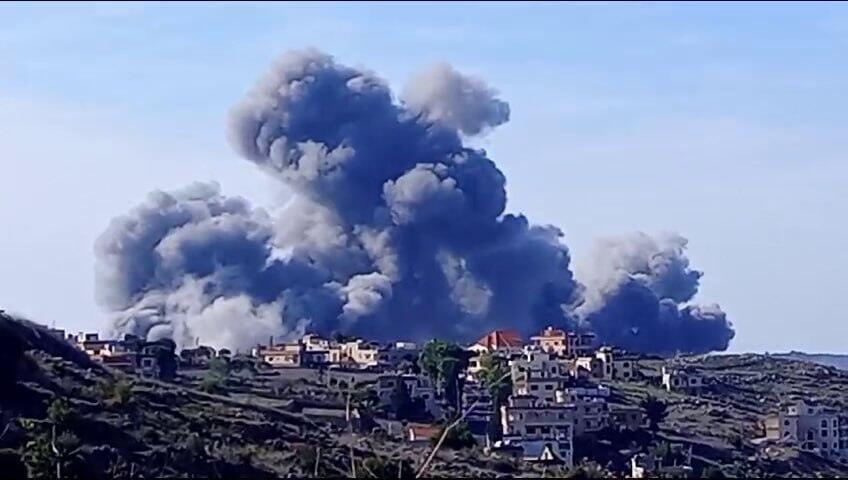The sounds of sirens, increasingly prevalent in Israel's north, continued to howl on Monday morning, including in small communities such as Ma'alot, Kfar Vradim and Abirim; the Iron Dome missile defense system intercepted six of the incoming rockets. The Israel Defense Forces responded in kind, launching artillery rounds at areas in southern Lebanon.
Read more:
The Hezbollah-affiliated publication Al-Akhbar published an extensive article on Monday morning, reporting on developments on the Lebanese border and the escalation between Israel and the Lebanese terrorist organization, which is an Iran proxy. According to the report, Israel used the United Nations Interim Force in Lebanon (UNIFIL) as an intermediary to send a message to Hezbollah, warning that any target, military or otherwise, that moves inside a 1.8-mile perimeter from the border is fair game for the IDF.
Missiles intercepted over Ma'alot
(Photo: Avi Malka)
Wary of the warning, Hezbollah replied by saying that should the Israeli threat be exercised, Hezbollah will view any target close to the border on the Israeli side as a legitimate target as well.
In a recent piece titled "From the South to Haifa Against the North to the Litani," Lebanese journalist Firas Al-Shoufi presents an intriguing perspective. Al-Shoufi suggested that Hezbollah might interpret Israel's demand for their retreat from the north of the Lebanese river as a reciprocal action. He conjectured: "If the premise is rooted in the same principle that guided Hezbollah's response to the most recent Israeli menace, then the call for a withdrawal to a region north of the Litani river could be countered by a demand from Israel to relocate the IDF as far south as Haifa."
The piece goes a step further, touching upon the role of Western emissaries. Allegedly, they have issued threats to Hezbollah on Israel's behalf, warning of a potential decimation of Beirut and calling for the enforcement of UN Resolution 1701. This resolution mandates Hezbollah's forces to pull back to the north of the Litani River.
These emissaries are also said to have attempted to placate Israel. They took into account Hezbollah's resolve to both uphold Lebanon's sovereignty and extend its influence to the Gaza Strip. Interestingly, Hezbollah asserts that an end to the Gaza war takes precedence over any prospective cease-fire.
However, the situation is not without complications. The piece raises two significant challenges. First, there is no mechanism for Western nations to guarantee that Israel will refrain from launching further assaults in both Lebanon and Gaza. Second, the task of mobilizing additional Lebanese army forces to the country's south is fraught with difficulties due to a plethora of internal issues.
One such issue is the fact that the Lebanese army, despite not having participated in any combat since the war erupted on October 7, has been the target of 60 attacks, highlighting the precarious situation that the Lebanese army finds itself in, illustrating the complexities of the conflict.





